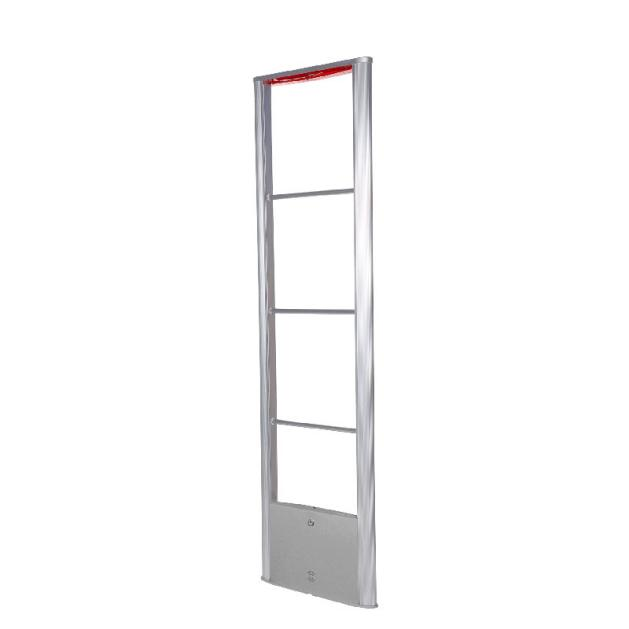1.the detection rate
Detection rate refers to the uniform detection rate of undemagnetized tags in all directions in the monitoring area. It is a good performance indicator to weigh the reliability of the supermarket anti-theft alarm system. A low detection rate often also means a high false alarm rate.
2. false alarm rate
Tags from different supermarket anti-theft alarm systems often cause false alarms. Tags that are not properly demagnetized can also cause false alarms. The high rate of false alarms makes it difficult for employees to intervene in security matters, which creates conflicts between customers and stores. Although false alarms cannot be completely eliminated, the false alarm rate is also a good indicator for weighing system performance.
3.anti-interference ability
Interference will cause the system to automatically issue an alarm or reduce the detection rate of the device, and the alarm or non-alarm has nothing to do with the anti-theft tag. This situation may occur in the event of a power outage or excessive environmental noise. Radio frequency systems are particularly susceptible to such environmental interference. Electromagnetic systems are also susceptible to environmental interference, especially interference from magnetic fields. However, the AM supermarket anti-theft alarm system adopts computer control and common resonance technology, so it shows a strong ability to resist environmental interference.
4.shield
The shielding effect of metal will interfere with the detection of security tags. This role includes the use of metal items, such as metal foil wrapped food, cigarettes, cosmetics, drugs, and metal products, such as batteries, CD/DVD, hairdressing supplies, and hardware tools. Even metal shopping carts and shopping baskets will also shield the security system. Radio frequency systems are particularly susceptible to shielding, and metal objects with large areas can also affect electromagnetic systems. The AM supermarket anti-theft alarm system adopts low-frequency magnetic-elastic coupling, and is generally only affected by all-metal products, such as cooking utensils. It is very safe for most other products.
5. strict security and smooth flow of people
Strong supermarket anti-theft alarm system needs to consider store security requirements and wholesale flow of people. An overly sensitive system affects shopping mood, and a lack of agile system will reduce the profitability of the store.
6.maintain different types of goods
Wholesale goods can generally be divided into two categories. One category is soft goods, such as clothing, footwear and textile goods, which can be maintained by EAS hard tags that can be used repeatedly. The other category is hard goods, such as cosmetics, food and shampoo, which can be maintained by EAS disposable soft labels.
7.EAS soft label and hard label-the key is applicability
EAS soft tags and hard tags are an indispensable part of any supermarket anti-theft alarm system. The performance of the entire security system also depends on the correct and appropriate use of the tags. It is particularly important to note that some labels are easily damaged by moisture, and some cannot be bent. In addition, some labels can be easily hidden in a box of merchandise, while others will affect the packaging of the merchandise.
8.EAS Detacher and Deactivator
In the entire security link, the reliability and convenience of the EAS detacher and deactivator are also an important element.
Post time: Nov-18-2021


